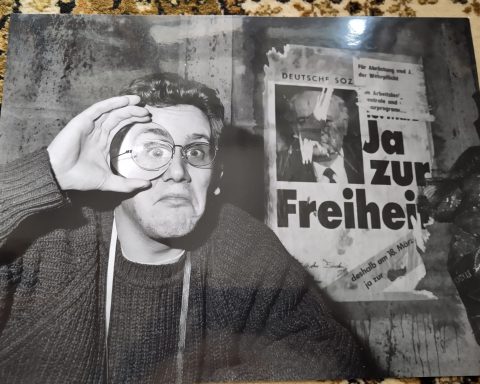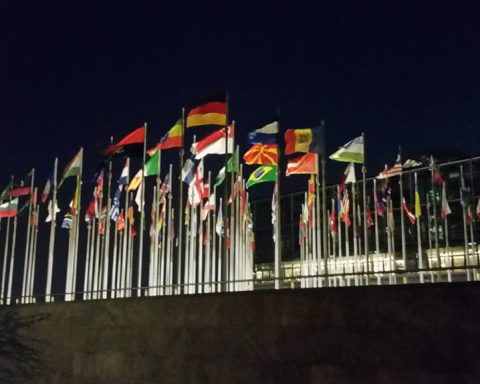For many musicians, the music scene in England brings a golden paradise to mind. English rock music has been associated with stardom and success since the moment Ringo Starr joined The Beatles, and Robert Plant became a sexual preference; held status long after Noel Gallagher emerged as the poet laureate of working people, and Morrissey adopted a role in public life akin to that of Prince Charles.
England has played an important part in rock’s development, from the African American blues embryos of Nashville to the likes of cerebral Radiohead caterwauling. History that deep remains an attractive lure, but the present reality is that guitar music in England has been out of fashion for a while now.
The electric guitar does not soundtrack the country’s culture in the way that it once did.
Major labels haven’t dared touch a guitar since the death of the post-punk revival. Fittingly, the last rock band to top the UK singles chart was a protest meme that saw Rage Against the Machine’s 1991 track “Killing in the Name” re-enter and take Christmas Number One in 2009.

Likewise, expectations on indie labels have had to be revised. Ten years ago, names like Bloc Party and Arctic Monkeys were experiencing massive international success while signed to London-based Wichita Recordings, and were selling millions of albums. Unfortunately for Cloud Nothings, artists on the Wichita label today cannot and do not expect that sort of career arc. Even bands who have sold their soul for the rush of the pop charts – like The Xcerts, or Deafhavana – still have to pay rent with their day jobs.
“I did the call centre thing. Actually, the last job I had in Brighton was to go into care homes and sing to the residents, and do little entertainment sessions… it wasn’t regular enough unfortunately, and really tough mentally. I had to give it up because I was just too sensitive for it. I was so scared of fucking up all the time, like I might drop someone,” says Theresa Elflein.
It’s not about the money. At least that’s what the romantics and Philistines say, as if they expect musicians to eat love and drink sweat. Enough food on the table is about money. Having a safe place to sleep at night is about money. Musical equipment costs a lot of money. Making an album is an obscenely expensive venture. Making music is not possible without some income and, unlike more orthodox industries, there is no correlation in the arts between how talented and skilled you are versus how successful you become and how much money you earn.
“It was a mental health decision.”
Theresa Elflein is speaking about her decision to leave England last year and move to Leipzig.
She is a musician in the back half of her twenties, and Bavarian – although she concedes that she feels like a foreigner out here in the Saxon flatlands.
Her adolescence coincided with the five year period between The Libertines’ debut and nu-wave. It was a time when the Camden music scene in London was at the heart of exciting movements in indie music, fashion, and comedy. Pete Doherty, Theresa tells me, was beautiful – just one example of how much has changed between that time and now.
“In England, it was just so hard to make ends meet, and I knew that it was unnecessarily hard because I could see my friends were doing so well here [in Leipzig]. They were living in these flatshare mansions, and still had so much free time to put into their music, and were actually making money from playing gigs. They were all doing what they wanted to.
“As much I love the UK and the culture and the people that I met there, I felt that all I was doing was just existing there.”

She and I are sitting on outdoor furniture across the road from the Westwerk art quarter. Theresa rents studio space there, and gives singing lessons in the daytime. By night, she plays piano, guitar and sings in a band called Mouth.
I came across Mouth for the first time back in February.
They were the local support act for Owl-Eye-Ring. The sloppy carnage of a new band playing live together for the second time, certainly, but the performance was underpinned by ambitious and satisfying songwriting.
Compositionally unpredictable, and bombastic lyrics, dynamic, pulling from the same pipes as post-millenial Radiohead and PJ Harvey, among other influences.
“Basically a lot of music made by angry women and fragile men, but don’t quote us on that.”
As a frontwoman, Theresa Elflein is somewhere on a spectrum between Patti Smith intensity and Dresden Dolls-era Palmer playful, with more than just an aesthetic resemblance to The Joy Formidable’s Ritzy Bryan.
These are her songs.
“I mean, my lyrics are okay but sometimes I feel like asking friends of mine who are really good with words if they can give me some words that they don’t need. That works really well…
“The band’s influence is important… If any of them were to write a song and bring it to the band that wouldn’t be a problem. Our guitar player the other day, actually, had this part that we were jamming around and it was sounding good… I’d like to think that in the future, we would be able to write songs like that.”
Mouth may not comfortably be considered a new band. Theresa moved to England in 2011, and since that time, Mouth have appeared and reappeared in several different forms wherever she has been: in Cambridge; in Brighton; and now here in Leipzig after shedding the skin of the entire old line-up.
This current Leipzig constellation of Mouth may be fresh and new, but they are playing songs that have been ironed out over several years. Their 2015 album Núna, a tightrope walk of alt-rock vaudeville and experimental candor, still forms the root of the band’s set.
Also, in a peculiar break from chronology, their most recent EP, An Exchange released in March 2018, was actually recorded over a year ago by the previous incarnation of the band. It contains only Theresa from the current line-up. It’s a parting gift to that time, she says.
“I like the name. Although I noticed there is another band in Germany called Mouth so we’re thinking about changing it. The guys are keen on just going as ‘Elflein,’ which is my last name. In German it means ‘little elf’… it’s kind of cool, right! Though I’m not totally convinced. ‘Elflein’ sounds like a solo project.”
Three months of rehearsals and live performances later, and the 21st June gig at Werk 2 is announced as Mouth’s official death date.

A video for “An Exchange” – their strongest recording yet – was uploaded to the band’s YouTube channel and, after one week, it’s found floating on the internet like driftwood. Leipglo took the honour of being the first ever view. Sepia filtered and artfully shot sometime early last year before the move to Leipzig.
The video belongs to another time, it belongs to another place. The boats have been burned and it really is goodbye.
“It’s not what we do anymore,” she says.
However, Theresa Elflein is excited, because her band has been getting tighter. They’ve been writing new material and redefining themselves. The four piece are ready to record a new album, and when that album is released later this summer, it will be a debut record by a new band called ELFLEIN.
From this new angle, that time in England now looks like a very long time ago.
Cover shot: The band’s new Leipzig line-up. Photo © Mouth







